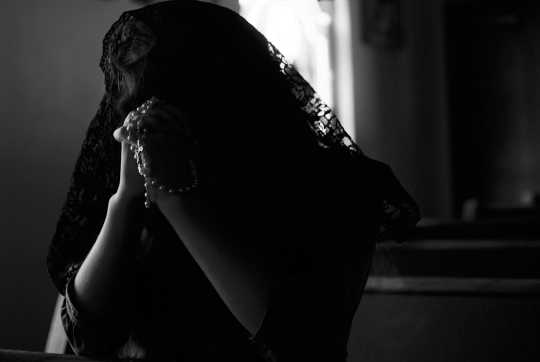The concept of reincarnation is a fascinating and complex belief that has been present in various religions and belief systems for centuries. It is the idea that after death, an individual’s soul will be reborn into a new body and continue to live on Earth in a different form. While the specifics of reincarnation may vary from one religion to another, the underlying principle remains the same – that the soul is immortal and undergoes a cycle of rebirth.
One of the major religions that believe in reincarnation is Hinduism. In Hinduism, the belief in reincarnation is tied closely to the concept of karma. Karma is the idea that every action a person takes has a consequence, either in this life or in future lives. The accumulated karma determines the circumstances of one’s next life, including the body one is born into, the experiences one will have, and the challenges one will face.
According to Hindu beliefs, the ultimate goal of reincarnation is to achieve moksha, or liberation from the cycle of birth and death. This liberation can only be achieved by breaking free from the cycle of rebirth and uniting with the divine. Through a process of spiritual growth, self-realization, and the practice of dharma (righteous living), an individual can gradually free themselves from the cycle of reincarnation and attain moksha.
Another religion that incorporates the concept of reincarnation is Buddhism. In Buddhism, reincarnation is also tied to the idea of karma, but with a slightly different interpretation. Buddhists believe in the continuous cycle of birth, death, and rebirth known as samsara. Like Hinduism, the goal of Buddhism is to escape from this cycle and achieve enlightenment.
However, Buddhists do not believe in the existence of a permanent soul or self that is reborn from one life to another. Instead, they believe that what is reborn is a stream of consciousness that is shaped by one’s actions, thoughts, and intentions. This stream of consciousness continues to flow from one life to the next, carrying with it the imprints of past actions and experiences.
In Buddhism, the key to breaking free from the cycle of reincarnation lies in achieving nirvana, a state of ultimate peace, wisdom, and liberation. By following the Eightfold Path and practicing mindfulness, compassion, and meditation, individuals can attain nirvana and be released from the suffering of samsara.
Christianity, on the other hand, has a more varied and nuanced view of reincarnation. While the belief in reincarnation is not a central tenet of Christianity, some Christian mystics and theologians have explored the idea of reincarnation in the context of spiritual growth and redemption.
One of the key figures in Christian mysticism who wrote about reincarnation was Origen, an early Christian theologian. Origen believed in the pre-existence of souls and that souls undergo a process of purification and growth through multiple lifetimes. He saw reincarnation as a means for souls to progress towards perfection and to ultimately be reunited with God.
Despite Origen’s teachings, the idea of reincarnation was later rejected by the mainstream Christian Church, which upheld a belief in a single life on Earth followed by judgment and either eternal damnation or salvation. However, some modern Christian thinkers and New Age movements have revisited the concept of reincarnation and see it as a way to reconcile the justice and mercy of a loving God.
In Islam, the belief in reincarnation is not a common or widely accepted idea. Muslims believe in the Day of Judgment, where all souls will be resurrected and judged according to their actions in one lifetime. The righteous will be rewarded with paradise, while the wicked will be punished in hell.
While the concept of reincarnation may differ in its interpretation and significance across different religions, the underlying themes of spiritual growth, karma, and liberation are universal. Many people are drawn to the idea of reincarnation as a way to make sense of the mysteries of life and death, to find meaning and purpose in their existence, and to explore the interconnectedness of all beings.
Whether one believes in reincarnation or not, the concept serves as a reminder of the impermanence of life and the importance of living with intention, compassion, and mindfulness. It encourages us to reflect on our actions, thoughts, and beliefs, and to strive for greater self-awareness, growth, and understanding.
In conclusion, exploring the concept of reincarnation in different religions offers us valuable insights into the nature of the soul, the cycle of rebirth, and the quest for enlightenment. By understanding and appreciating the diverse perspectives on reincarnation, we can deepen our spiritual practices, cultivate empathy and compassion for all living beings, and strive towards greater harmony and unity within ourselves and the world around us.

